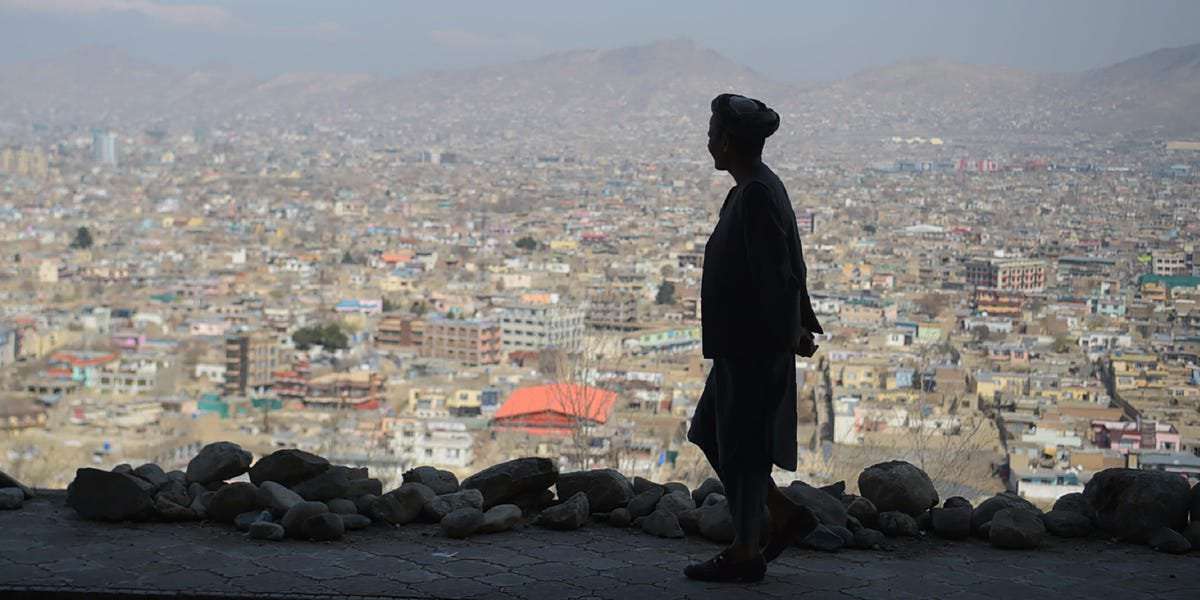Kabul faces winter blackouts if it cannot pay for its electricity imports, according to The WSJ.
Taliban control has caused the economy to falter, making it hard for families to pay their bills.
That could cause a humanitarian disaster, according to the former CEO of the state power company.
10 Things in Politics: The latest in politics & the economy Loading Something is loading. Email address By clicking ‘Sign up’, you agree to receive marketing emails from Insider as well as other partner offers and accept our Terms of Service and Privacy Policy
Afghanistan's capital could be facing a winter of blackouts, The Wall Street Journal reported.
The outlet said the city's supply is at risk because the Taliban government stopped paying the foreign companies that supply most of its electricity
"The consequences would be countrywide, but especially in Kabul," Daud Noorzai, the former chief executive of Afghanistan's power company, told the paper.
"There will be blackout, and it would bring Afghanistan back to the Dark Ages when it comes to power and to telecommunications," he said.
About 70% of Afghanistan's power supply comes from outside the country, according to the Caspian Policy Center, a Washington, DC-based think tank .
When the Taliban seized control of the country in August, they took power over Da Afghanistan Breshna Sherkat, or DABS, the state power company — and inherited its debts, according to The Journal.
DABS needs about $90 million to address its liabilities, its chief operating officer, Safiullah Ahmadzai, told The Journal. These include debts to power suppliers in neighboring Turkmenistan, Tajikistan, and Uzbekistan.
A Taliban cleric replaced Ahmadzai, who was acting as DABS' CEO, on Sunday, the paper reported.
As of 2020, DABS paid up to $280 million per year for imported power, according to the Afghan news outlet Tolo News.
But the Taliban has so far refused to allow DABS to use the $40 million in its accounts to pay off its creditors, Ahmadzai told The Journal.
"Our neighboring states now have the right to cut our power, under the contract," he said.
Afghan government receipts have slowed to a trickle as the country's economy founders, making it difficult for families to pay their DABS bills, the paper reported.
Afghanistan has long been troubled by fluctuating power supplies, with residents in Kabul complaining in June of high bills and having only limited hours of service per day, Tolo News reported.
With the Taliban now in control, electricity supplies have temporarily increased, according to The Journal.
The militant group has ceased its attacks on the power grid. A hiatus in industrial and government activity has seen the supply flow toward residential users, the paper reported.
But if Afghanistan's suppliers cut the power off, the country could face a crisis come winter, Noorzai told the paper.
This is a particular risk with Tajikistan, where the ruler Emomali Rahmon sheltered Afghanistan's ousted President Ashraf Ghani and said he rejects Taliban rule, according to The Diplomat.

ThisShouldBeObvious2 on October 4th, 2021 at 15:57 UTC »
It’s almost like they have no idea what the fuck they’re actually doing
mbattagl on October 4th, 2021 at 14:50 UTC »
Damn the electric company will turn out anybody's lights. They ain't scared.
bloatedplutocrat on October 4th, 2021 at 13:51 UTC »
Hop in this magical phone booth and I'll take you to a conversation between the Taliban and large corporations in the late 1990s:
"Why won't foreign companies invest in our country?"
"Because your leader keeps the nations budget as cash stashed in trunks under his bed to distribute as he sees fit."